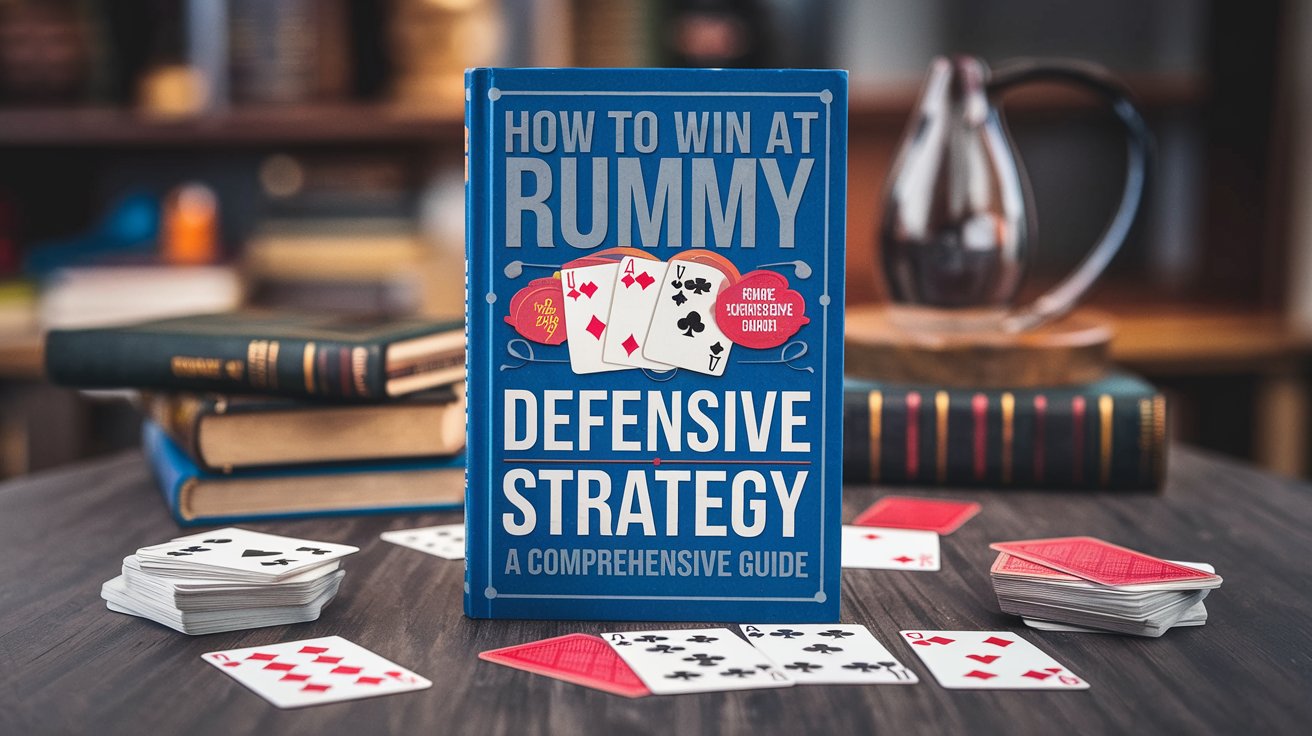Rummy is a game of skill, strategy, and calculated moves. While many players focus on aggressive gameplay, the true masters of the game understand the power of a solid defensive strategy. In this comprehensive guide, we’ll explore how to turn defense into your most potent weapon, helping you outmaneuver opponents and consistently improve your Rummy game.
Understanding Defensive Rummy: More Than Just Playing Safe

What is a Defensive Strategy in Rummy?
A defensive strategy in Rummy is not about playing timidly—it’s about playing smart. It’s a sophisticated approach that involves:
- Minimizing your point exposure
- Blocking your opponents’ potential melds
- Carefully managing the information you reveal
- Strategically disrupting your opponents’ game plans
Think of it like a chess match, where every move is calculated to protect your interests while subtly undermining your opponents’ strategies.
Core Principles of Defensive Rummy
1. Minimize Point Liability
The Art of Point Management
In Rummy, points can make or break your game. A defensive strategy prioritizes reducing the point value of cards in your hand:
- Prioritize discarding high-value cards early
- Watch for opportunities to create quick melds
- Be strategic about holding face cards and aces
For example, a Jack (10 points) or an Ace (10 points) can significantly increase your penalty if the game doesn’t go your way. Identifying and managing these high-risk cards is crucial.
2. Strategic Discard Pile Manipulation
Reading and Controlling the Discard Pile
The discard pile is more than just a source of cards—it’s a strategic communication channel:
- Observe what cards opponents are picking up
- Deliberately discard cards that might mislead opponents
- Avoid giving away critical information about your hand
A well-placed discard can confuse opponents about your potential melds while protecting your actual strategy.
3. Information Blocking Techniques
Preventing Opponent Melds
Defensive Rummy is about anticipation and prevention:
- Notice the sequences and sets your opponents might be forming
- Strategically hold cards that could complete their melds
- Discard in a way that breaks potential combinations
If you notice an opponent picking up multiple hearts, holding onto heart cards can prevent them from completing their set.
4. Risk Mitigation in Card Selection
Balanced Hand Management
A defensive approach requires a delicate balance:
- Maintain multiple potential meld options
- Avoid committing too early to a single strategy
- Keep your hand flexible and adaptable
This means holding cards that could work in different combinations, giving you the ability to pivot quickly.
Advanced Defensive Tactics
Reading Opponent Behavior
Psychological Warfare in Rummy
Defensive strategy goes beyond the cards—it’s about understanding player psychology:
- Watch for patterns in opponents’ drawing and discarding
- Note hesitations or quick moves
- Recognize when an opponent is close to completing a meld
An opponent who frequently checks the discard pile might be one card away from a crucial set or sequence.
Timing and Patience
The Virtue of Calculated Waiting
Defensive players understand that not every hand requires immediate action:
- Sometimes, waiting is the best strategy
- Observe the game’s flow before making significant moves
- Be prepared to let go of initial hand strategies
Bluffing and Misdirection
Subtle Strategic Deception
Defensive play isn’t just about protection—it’s about subtle manipulation:
- Discard cards that suggest a different strategy
- Create uncertainty about your actual game plan
- Make opponents second-guess their moves
Practical Techniques for Defensive Play
1. Early Game Defense
Setting the Right Foundation
- Keep your initial hand balanced
- Avoid committing to a single meld strategy
- Maintain flexibility in your card combinations
2. Mid-Game Strategic Adjustments
Adapting to Changing Dynamics
- Continuously reassess your hand
- Be ready to change strategies
- Monitor opponents’ potential melds
3. End-Game Defensive Moves
Protecting Your Score
- Focus on minimizing point liability
- Create quick melds to reduce high-value card risks
- Be strategic about declaring or dropping
Common Defensive Strategy Mistakes to Avoid
Overdefensiveness
- Don’t become too passive
- Balance defense with strategic offensive moves
- Avoid holding onto cards for too long
Ignoring Opponent Patterns
- Stay observant
- Adapt to different playing styles
- Don’t rely on a single defensive approach
Tools and Resources to Improve Defensive Rummy Skills
Practice Platforms
- Online Rummy websites
- Mobile Rummy apps
- AI-powered training games
Learning Resources
- Rummy strategy forums
- YouTube tutorial channels
- Professional player blogs and guides
Conclusion: Mastering the Art of Defensive Rummy
Defensive Rummy is a nuanced skill that combines:
- Strategic thinking
- Psychological insight
- Calculated risk management
It’s not about playing not to lose, but playing to win through smart, calculated moves.
Key Takeaways
- Stay flexible
- Observe carefully
- Manage your points
- Keep opponents guessing
Remember, the best defense in Rummy is a strategy that keeps your opponents constantly adjusting their game plan.
Become a Rummy Master—One Defensive Move at a Time!
Zareb Saleh is a journalist at Gulf Today and a ghostwriter for Gameoholic, specializing in gaming, technology, and digital culture. With a keen eye for industry trends, he delivers insightful stories that engage and inform readers.